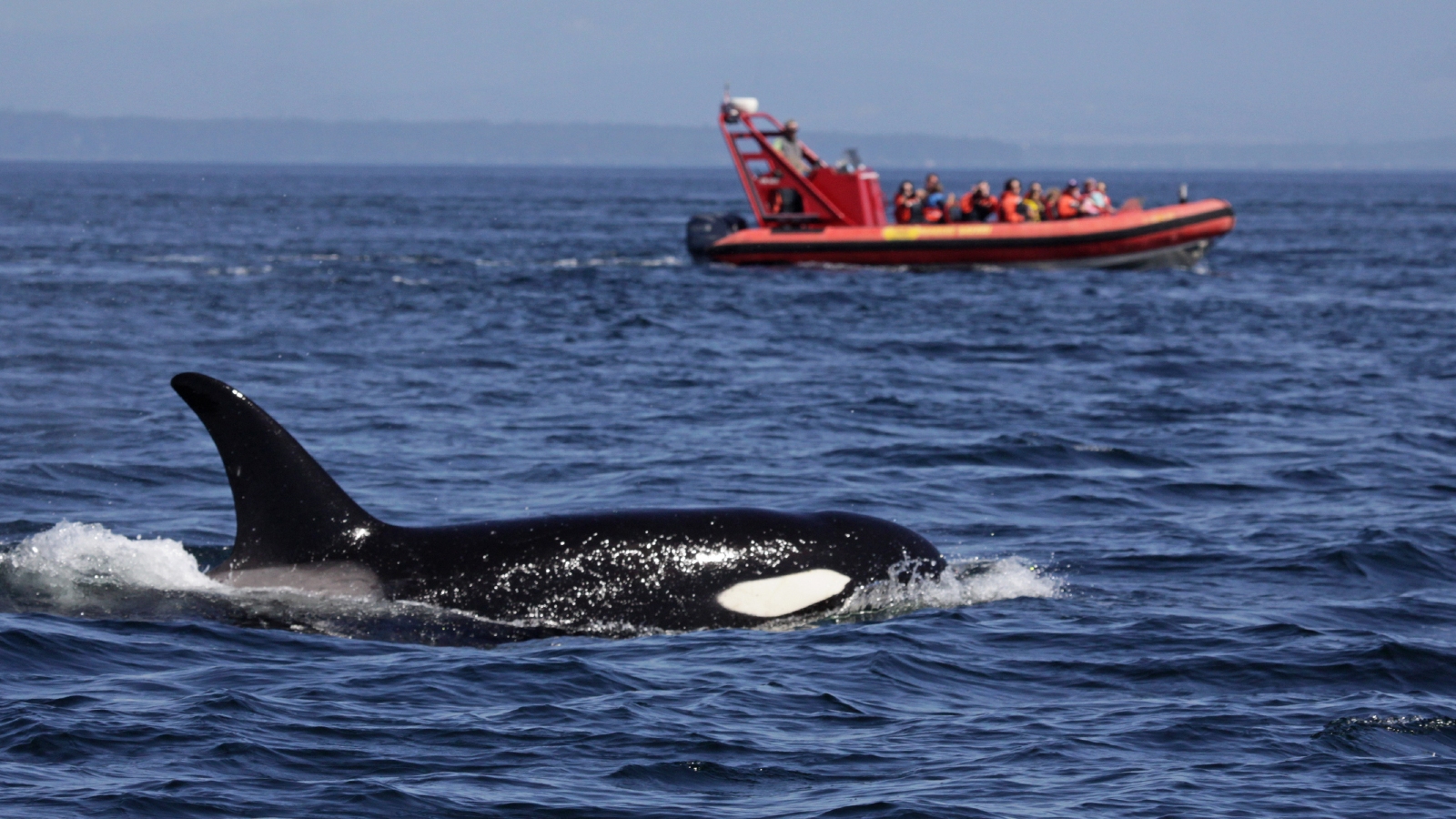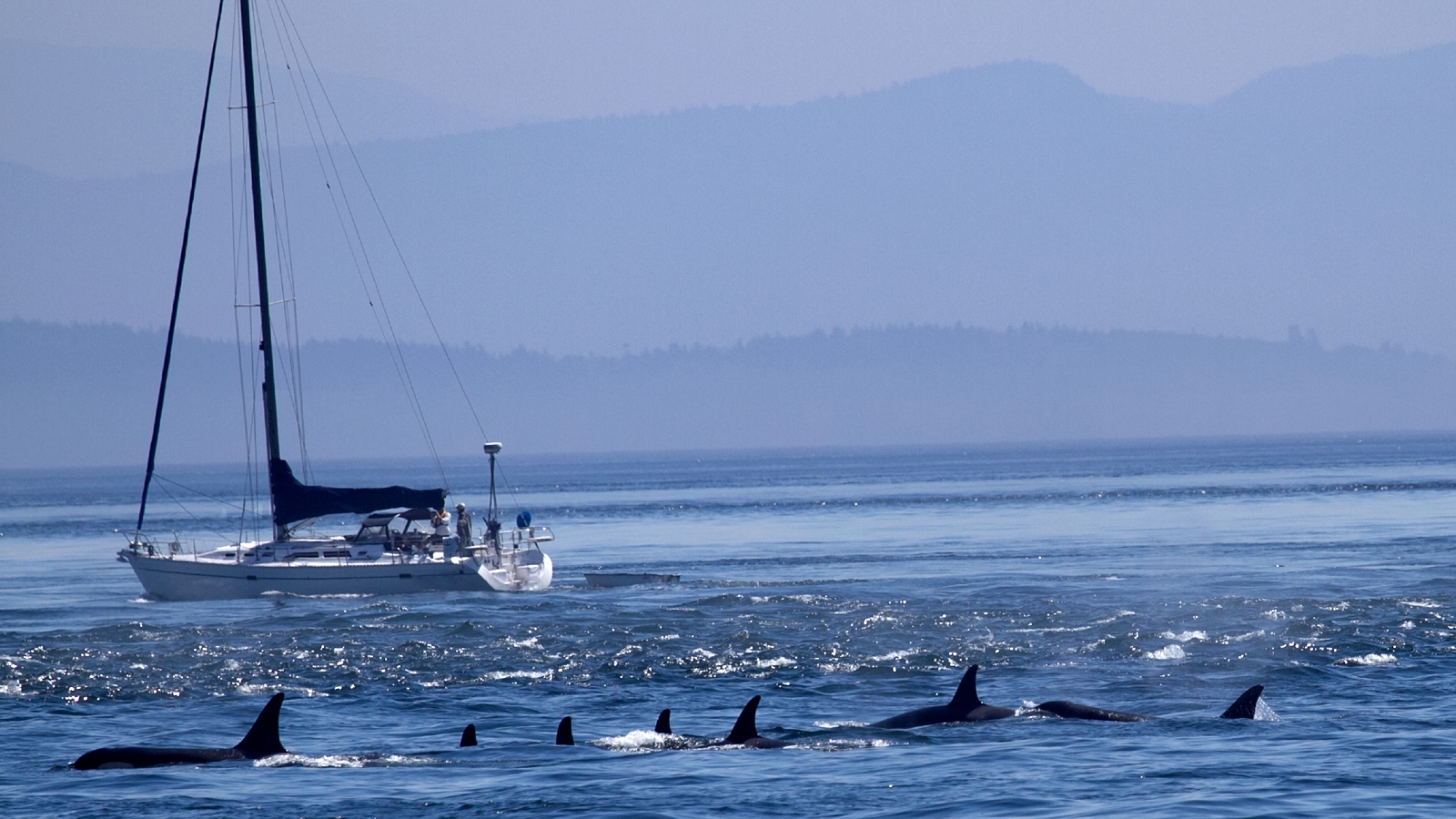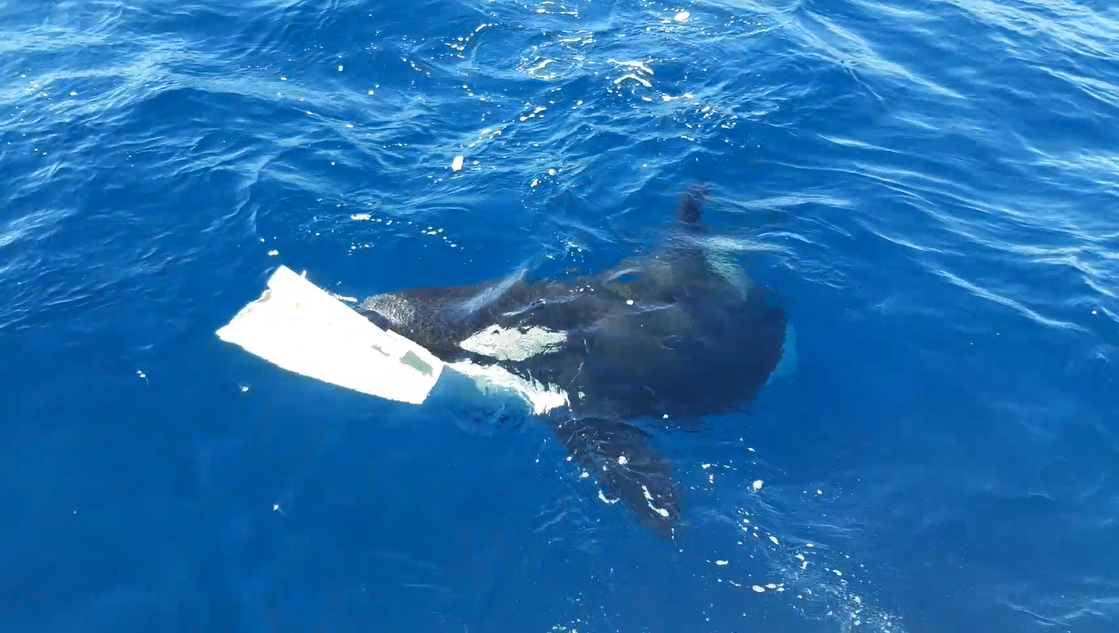
Orcas that have been terrorizing boats in southwest Europe have just sank their fifth yacht in three years. And experts have warned that more attacks are likely in the coming months after the orcas unexpectedly switched up their behavior earlier this year.
On Sunday (May 12), an unknown number of orcas (Orcinus orca) attacked the 49-foot-long (15 meters) sailing yacht named the Alboran Cognac in the Strait of Gibraltar — a narrow body of water between southern Spain and North Africa that separates the Atlantic Ocean and Mediterranean Sea. During the attack, which began at around 9 a.m. local time, the killer whales repeatedly rammed the boat's hull and rudder, Reuters reported.
The yacht's two-person crew radioed for help and was rescued by a passing oil tanker. But the vessel's hull sustained serious damage during the attack and the yacht began to take on water, which eventually caused it to sink, Reuters reported.
The attack was likely carried out by a growing number of individuals from the Iberian subpopulation of orcas — a group of around 40 killer whales that live off the coasts of Spain, Portugal, Morocco and Gibraltar — that have been attacking boats across their range since 2020.
Most of the attacks occur between May and August each year in and around the Strait of Gibraltar. However, earlier this year, some of the highly social apex predators were spotted circling a boat in northern Spain, suggesting they have spread out much further and earlier than normal.
As a result, the Spanish authorities have warned recreational boaters to avoid sailing too far from the coast and to not stop their vessels if they are approached by orcas, according to a translated statement from Spain's Maritime Safety and Rescue Society.
Related: Orcas are learning terrifying new behaviors. Are they getting smarter?

Since the attacks started in 2020, sailors have reported around 700 interactions with orcas in the area, ranging from circling and nudging vessels to ramming, ripping apart and sinking boats, Reuters reported.
The most recent sinking event prior to this one occurred on Halloween last year when a pod of orcas sank a sailing yacht in the Strait of Gibraltar after a near hour-long attack. Before then, at least three other boats were sunk in the region between 2022 and early 2023. However, no humans have been injured or killed.
During attacks, the orcas' most common tactic is to damage or rip off the vessel's rudder, which makes it impossible to steer the vehicles. Researchers believe this is a learned behavior, and eye-witnesses have previously reported seeing individuals seemingly teach other orcas how to do this. As a result, the number of attacks has increased over the last few years.

So far, at least 15 individuals have been linked to at least one attack in the region. But researchers believe the attacks can be traced back to a single female, named White Gladis, who may have been pregnant when she started harassing the boats. However, it is unclear exactly what sparked the attacks.
There has even been a suggestion that the behavior has spread beyond the Iberian population after an orca similarly attacked a boat in Scotland in 2023. However, this was an isolated incident, which makes it hard to link it to the Iberian attacks.







